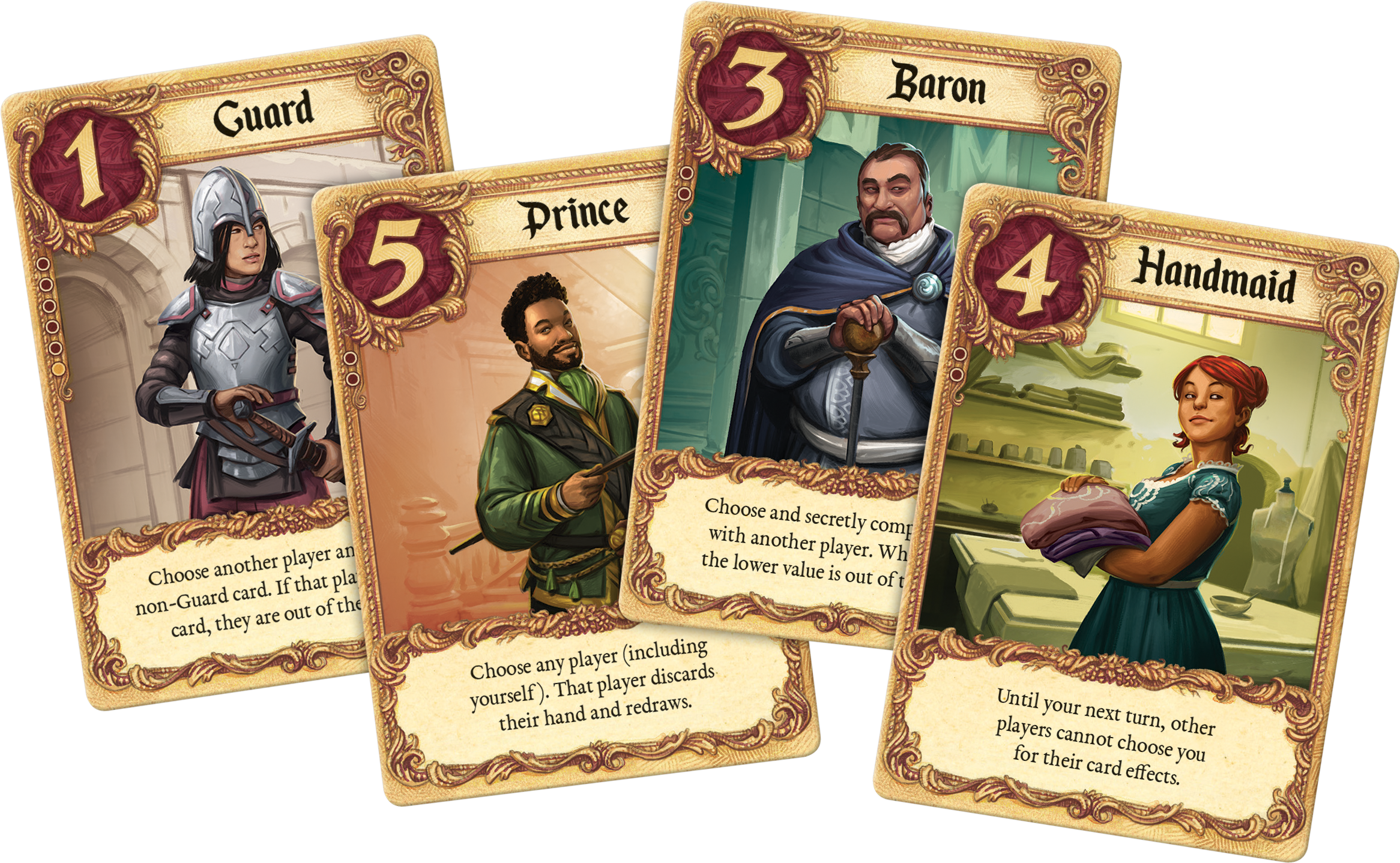Love Letter: Screw historical accuracy - bring on the diversity!
We talk about diversity in gaming a lot and why it matters but there is one key aspect we don’t talk about enough and that’s where the diversity needs to be happening. The more accessible a game is, the more reach it has. This means the quicker it is to learn, the less it costs, the easier it is to play and the less time it takes, the more people are going to be able to play it. These are the games we should be focused on making diverse which is why I was so thrilled this morning to see that Z-Man games is releasing a new version of Love Letter that’s more inclusive than ever!
Love Letter is a deduction game in which each player has one card in their hand and on their turn they draw a second card. Then the player chooses one of them to play by placing it face up in front of them and performing the action listed on the card. Each character has their own unique ability. When the last card is drawn, and played, the winner is the player with the highest value card in their hand. The cards in the game are numbered 1-8 with 8 of course, being the Princess herself. The abilities of the cards allow the players to avoid the effects of other cards, look at other players cards, make players discard their hands, or even fully kick them out of this round. The player who won that round gets a token of affection and the first player to get to the target number of tokens, based on the number of players, wins the game!
What excites me the most about Z-Man diversifying Love Letter is that they don’t care if the game is period accurate and honestly, nobody should. The notion that something needs to be historically accurate to be good is complete nonsense. I would much rather see a young child look at a character and be told they can be that handsome prince than to consistently be sent the message that certain roles are only for a certain kind of person, which is exactly what happens when we don’t diversify games. If you’re looking for historical accuracy, just read a history book instead, kidding, of course. We know who wrote history books and they’re not accurate either.
I know diversity matters because I am a Latina single mom and I was 26 years old the first time I saw myself represented on television. The first Latina woman I ever saw on TV was Selena when I was 4. After that it was JLO in Maid in Manhattan when I was 12 (who is cancelled for taking that Motown performance at the grammy’s btw) and after that it was Callie Torrez in Grey’s Anatomy when I was 16 years old. Since then I can still only count a handful of visible Latina women I’ve seen on television in media that’s worth consuming, meaning media that treats them as people as opposed to accessories. I had an impossible time determining my self-worth growing up and to this day I struggle with valuing myself beyond the value that others place on me.
In board gaming, diverse representation is even more abysmal. I’ve seen one Latina mom in all of my board gaming experience and that was a character in Dead of Winter. Representation matters especially to those who don’t see a lot of it and it’s critical that we do everything we can to reach out to marginalized communities and do better by them. This means including Transgender people, like in Blue Rose. This means including people of color like Dead of Winter did. This means including disabled people like Renegade Game Studios did in Topiary. My point being simply this: including a diverse range of humans is always going to be good for your bottom line. It will start conversations among those communities and it will tell more people that they are welcome in the tabletop gaming space. Our community should be taking one look at other industries and understanding how much potential we have to grow not only financially, but emotionally and mentally. We’re behind on being inclusive and I want us to see that as an opportunity to improve.
Bebo
Brittanie Boe is a writer, photographer and video producer who founded Be Bold Games in 2018. Her passions include her cat Dax, her daughter Hailey, bouldering, and going on adventures to capture the perfect photos on her camera.
She writes about her perspective as a Latinx woman in gaming and is passionate about intersectional feminism as well as queer inclusion and advocacy. When she’s not tweeting she’s off in the mountains playing ukulele and singing at the top of her tiny lungs.



